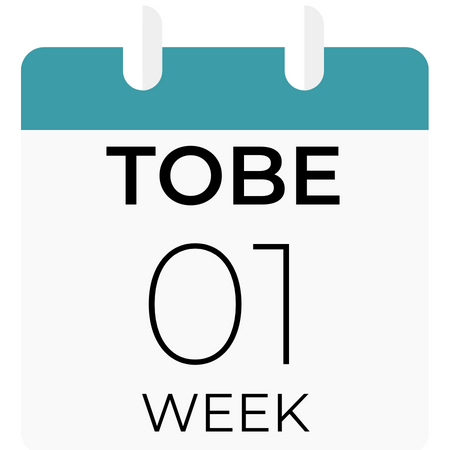The Flight to Egypt &
The Massacre of the Enfants
“Rise, take the child and his mother, and flee to Egypt, ………
for Herod is about to search for the child, to destroy him.” Matthew 2:13
On the first Sunday of Tobe, the Church reads from Matthew 2:13-23. This Gospel, alongside all the readings of the day, focuses on how, through the incarnation of Jesus Christ, all Jews, all Gentiles, and all people can attain salvation. For this Gospel passage, we will focus on this theme, the prophecies, and the character of St Joseph.
St Joseph’s character throughout this passage is quite astonishing. Before this, he is told that He will be taking care of the Messiah, the Savior of the World, yet at the same time, he is asked to flee to Egypt to escape Herod’s wrath. He didn’t question God, saying, “If you’re truly the Messiah, then save us from Herod,” or “I didn’t ask to be put into this situation.” It is imperative for us to learn the obedience that St Joseph possessed. Not once did he grumble or doubt God when the angel of the Lord appeared and asked him to flee. The understanding of God is genuinely unsearchable (Isaiah 40:28), and while we may not understand God’s wisdom at times, we must still do as St Joseph and fully yield and trust in the Lord.
The first prophecy mentioned in this reading is from Hosea 11:1, which reads, “out of Egypt I called My Son,” and it also can be considered to be taken from Numbers 23:21-23 “God brings them out of Egypt and is for them like the horns of the wild ox.” During the time of Jesus, Egypt was one of the world’s bustling centers where many different kinds of people lived. More importantly, Egypt held an infamous reputation in the Old Testament for symbolizing sin, stubbornness, and a willingness to turn away from God. Therefore, these prophecies are of extreme significance because God’s fleeing to Egypt signifies His acceptance of all Gentiles and His taking upon Himself our sin through the cross. May God renew our hearts of sin and build an altar within us, as it says in Isaiah 19:19, “In that day there will be an altar to the Lord in the midst of the land of Egypt.”
The second prophecy, as mentioned in Jeremiah 31:15, paints an agonizing picture: “A voice was heard in Ramah, weeping and loud lamentation, Rachel weeping for her children; she refused to be comforted, because they are no more.” Jeremiah’s prophecy vividly describes the intense mourning and excruciating pain that the mothers endured around the birth of Christ, foreseeing the tragic loss of their innocent children. St John Chrysostom shares this sentiment, stating, “In the infants themselves, their death ends their cries; in the mothers, it is continually renewed by the remembrance of their loss.” This emphasizes the enduring grief buried deep in the hearts of the mothers of the innocent children of Bethlehem. While the passage holds historical significance, it encourages an allegorical interpretation. It prompts us to reflect on the unfathomable pain that our Lord Jesus Christ experiences when we, His children and His image (Genesis 1:27), turn away, spiritually killing ourselves. Here we can draw an analogy between the earthly lives lost in Bethlehem and the grief we cause the Holy Spirit (Ephesians 4:30) when we turning away from Him.
The overarching theme in this passage is that God has manifested His salvation to all, which is evident throughout His entire life and ministry. Not only did Christ enter Egypt and live there for three years and six months, symbolizing His acceptance of the Gentiles, but Christ also grew up in the district of Galilee, specifically in Nazareth (Mt 2:22-23), and Galilee was known as the place where many gentiles lived. Moreover, after Christ had fasted for forty days and began His ministry, He first proclaimed the Gospel of God in the land of Galilee, the land of the Gentiles (Mk 1:13-15). Furthermore, the Jews at that time believed that the Galileans were an abomination. The humility of our Lord is truly remarkable; not only did the King of Kings dwell in a manger, but He also chose to live with and serve ‘abominable people’ according to the time. We should emulate Christ’s humility by loving those who are despised in the eyes of others and genuinely humbling ourselves before them. While this may include speaking and eating with homeless people, drug addicts, single mothers, and orphans, let us not forget that Christ ate and dwelt with tax collectors and sinners (Mark 2:16).
May we be like Joseph, always trusting and depending on the Lord, and remember that God was incarnate for all people, desiring to dwell in us.
Sources:
- Bible, English Standard Version
- Catena Bible, Commentary on Matthew
- Out of Egypt I Called My Son, Coptic Orthodox Diocese of the Southern United States, https://suscopts.org/resources/literature/220/out-of-egypt-i-called-my-son/
- Patristic Commentary on Matthew, Fr Tadros Y Malaty
- Patristic Commentary on Hosea, Fr Tadros Y Malaty

